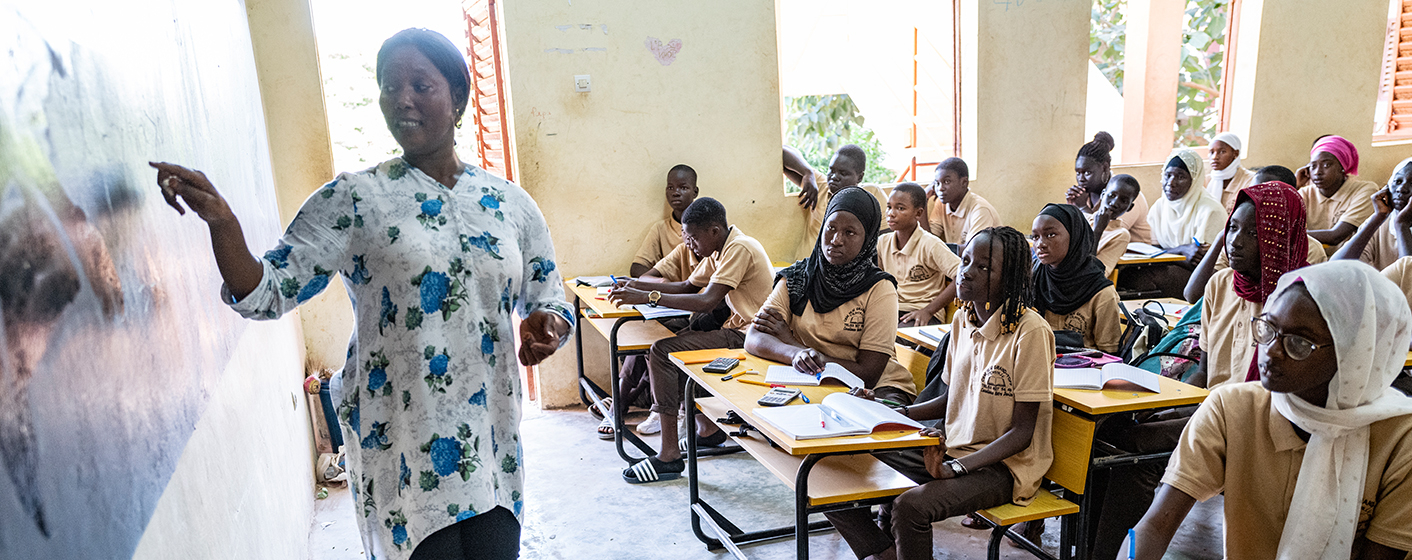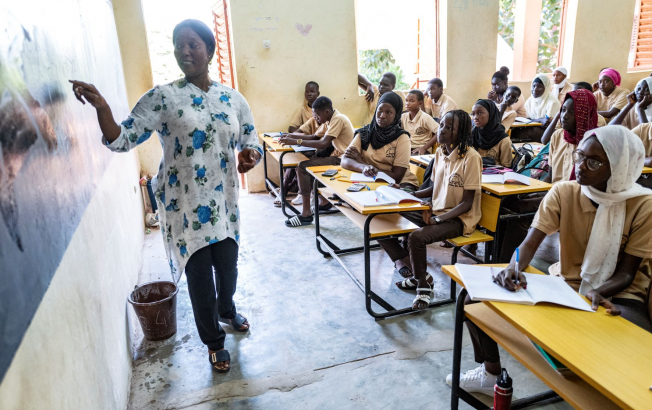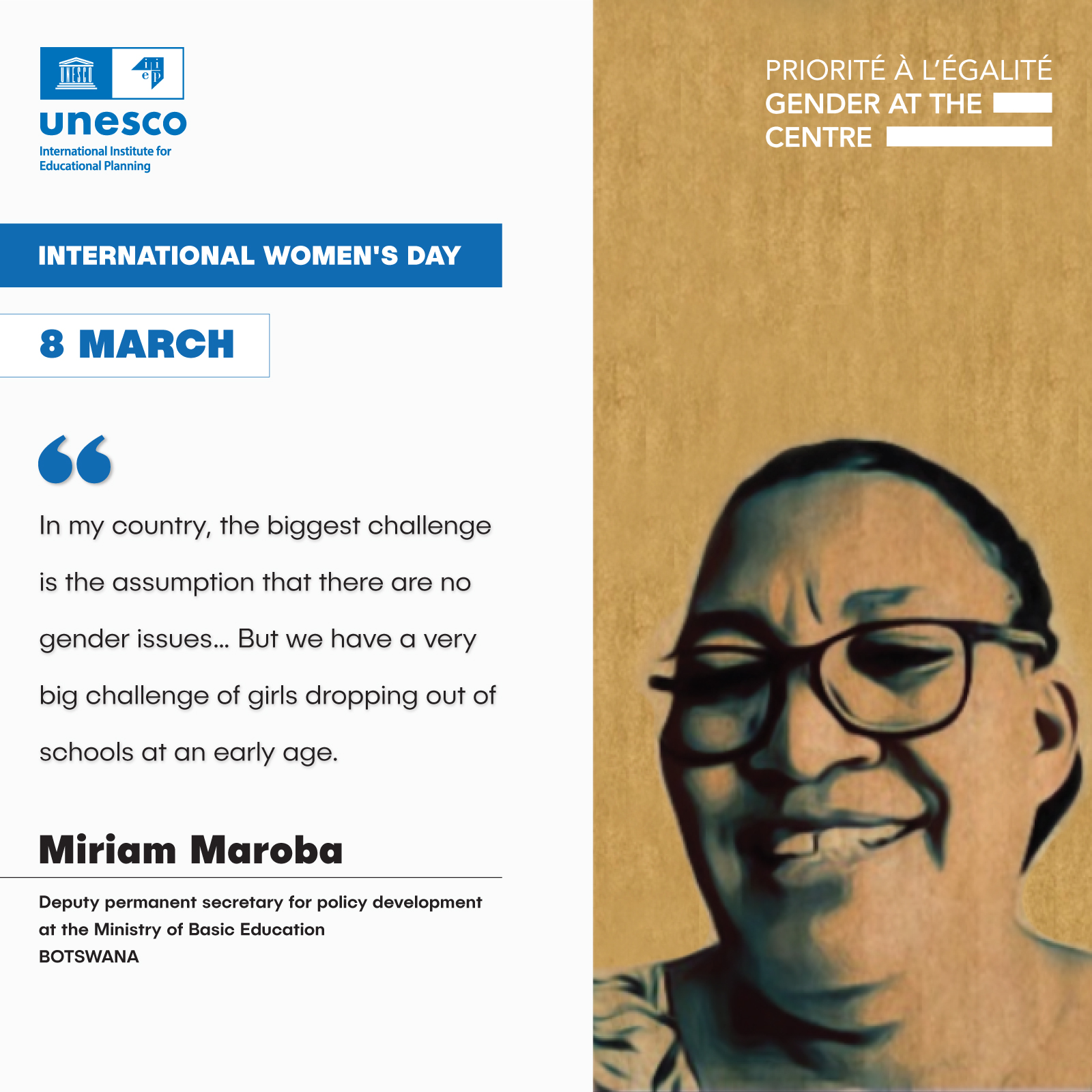International Women's Day: IIEP supports gender equality in and through education
Today, the world celebrates International Women's Day. IIEP-UNESCO Dakar is working to promote gender equality in and through education in Africa with its flagship Gender at the Centre Initiative (GCI).
Many countries around the world are not meeting the Education 2030 targets for gender equality in education. Capacity building in gender-responsive education planning and management is therefore a key element in achieving equitable and inclusive quality education for all.
Targeting eight countries in sub-Saharan Africa, the Gender at the Centre Initiative was launched in 2019 as part of the G7 summit. IIEP Africa Office provides technical leadership to this international consortium, which aims to build the capacity of actors in education systems and develop resources for gender equality in and through education.



